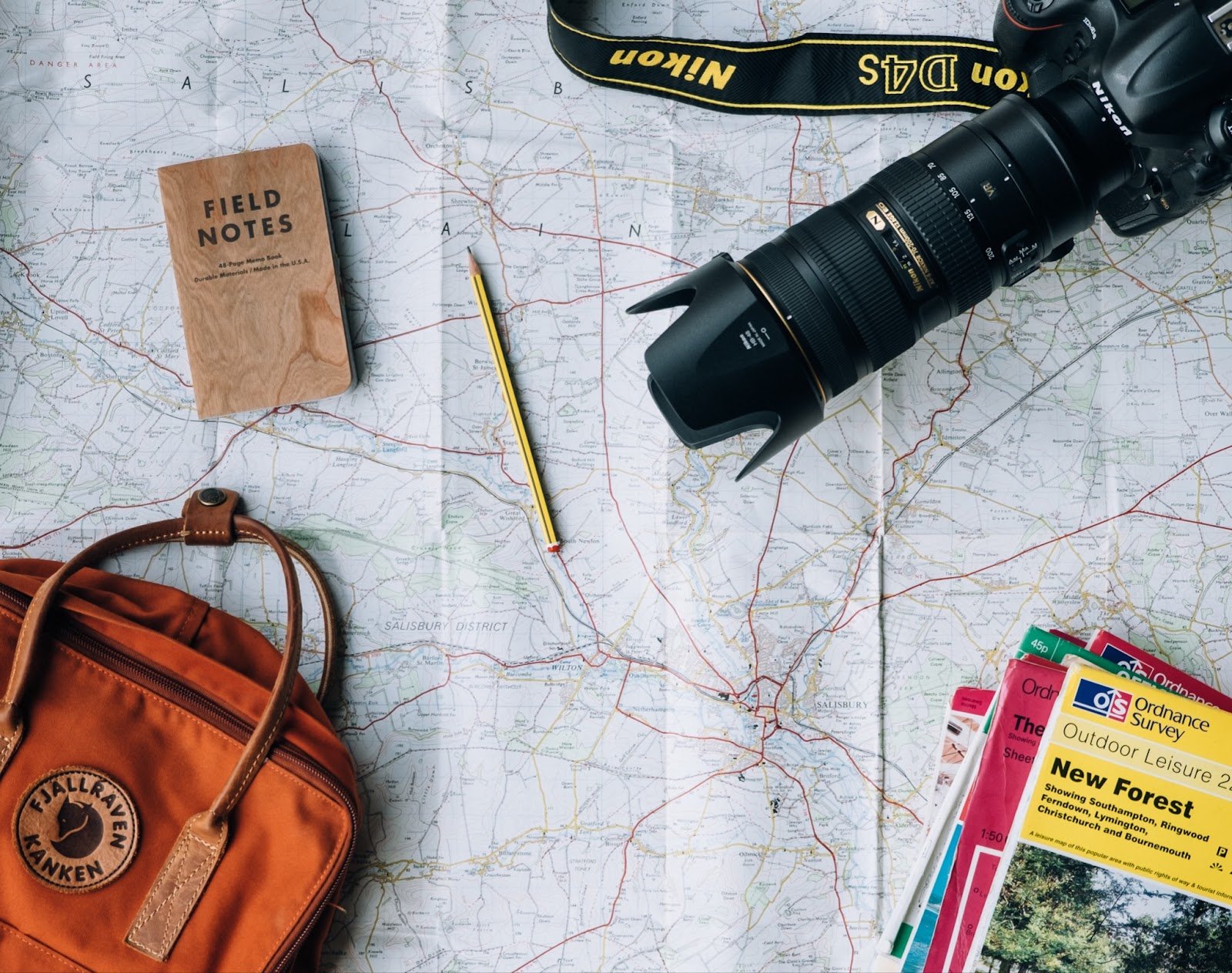Image by Annie Spratt
Are you going on holiday soon? Or simply preparing yourself for future travels? Wherever you go around the world, you’d often find that English would be the best medium of communication between you and the locals. Even if you’re travelling domestically within Malaysia, you’ll find plenty of opportunities to practice your English too! From checking into hotels to booking train tickets, knowing English would make the process much easier.
As an English learner, you might also come across essays that ask you to describe a recent holiday or share about your dream vacation. Therefore, we’re hoping that this list of travel-related vocabulary below would be helpful for you in real life as well as in your English essay writing too!
1. Travel Accommodation
Image by Marten Bjork
Useful vocabulary to know when booking travel accommodation
Check-in – The process of registering guests arriving at a hotel
Check out – The process of leaving the hotel after paying and returning the room key
Room service – a service provided in a hotel where guests can order food and drink to be brought to their rooms
Housekeeping – the department that is responsible for cleaning the hotel and guest’s bedrooms
Porter – A person employed to carry luggage and other things for guests
Complimentary – given free of charge
Toiletries – things that we use to wash or take care of our body. For example, soap, shampoo and toothpaste
Safe – a small metal cupboard with a lock where you can store valuables such as money and jewellery
Lobby – the entrance hall of the hotel
Reception – the area in a hotel where guests are greeted and dealt with
En-suite – A room with an attached bathroom
2. Air Travel
Image by John McArthur
Useful vocabulary when talking about air travel
Round trip – a journey to a place and returning to where you started from
Customs – the place at the airport where bags are checked or scanned
Immigration – the place at the airport where officials check your passport and other documents to make sure that you are allowed to enter the country
Travel insurance – insurance for people who are travelling, to pay for any medical treatment, loss of money or property, etc
Boarding gate – The gate or area where passengers wait to board an aircraft
Cabin – the area where passengers sit in an aircraft
Aisle – a long and narrow space between rows of seats in an aircraft
Baggage claim – the area in an airport where you collect your luggage when you arrive
Duty-free goods – duty-free goods are things that you can buy from certain shops where you don’t have to pay government tax
Transit – refers to the stop in between the journey or a non-direct flight where you will have to change aircraft
Turbulence – strong, rocky or sudden movements on the plane due to changes in the airflow
Jet lag – the feeling of tiredness and confusion after a long journey by plane to a place where the time is different from the place they left
3. Sea Travel
Image by Bruce Warrington
Useful vocabulary when talking about sea travel
Ferry – a boat or ship that carries passengers and often vehicles on a regular basis
Cruise – a holiday journey on a large ship where passengers usually visit several places
Deck – a flat area for walking at the sides of a boat or ship, especially the upper level
Jetty – A platform where boats stop to let people get on or off or to load or unload goods
Harbour – a place by the sea where ships and boats can shelter and be secured, especially one that is protected from rough water
Port – a town by the sea or by a river that has a harbour, or the harbour itself
Embark – to go onto a boat or ship
Disembark – to get off the boat or ship
Choppy water – rough water, strong waves
Life jacket – a piece of equipment like a jacket without sleeves that is designed to help you float in water
Anchor – a heavy metal object attached to a strong rope or chain that is dropped from a boat into the water to prevent the boat from moving away
4. Land Travel
Image by Ankush Minda
Useful vocabulary when talking about land travel
Vehicle – a thing used to transport people or goods, especially on land
Platform – a long, flat raised structure at a railway station, where people get on and off trains
Railway – a track made of steel rails along which trains run or a system of tracks that trains travel along
Tram – an electric vehicle that transports people, usually in cities, and goes along metal tracks in the road
MPV – a large car, typically with six or more seats
Coach – a bus-like vehicle with comfortable seats used to take groups of people on longer journeys
Trishaw – a light vehicle with three wheels and pedals
Rickshaw – a small, covered passenger vehicle with two wheels that is usually pulled by a person
Fare – the cost of a journey, the price of a ticket
Delay – when something happens at a later time than originally planned or expected
To hail a taxi – to hold up your arms to call for a taxi
Sample essay with some of the travel vocabulary above
Last year, my family and I went on a holiday to Bali, Indonesia. It was my first time on a plane, and it was very exciting.
During the flight, I sat by the window while my dad sat on the aisle seat, so there was more room to stretch his leg. I was nervous when we encountered some turbulence, but I was told that there was nothing to worry about.
In Bali, we stayed in a beautiful resort near the beach. The check-in process was smooth, and the staff were very friendly. I also enjoyed the daily complimentary breakfast. Although the sea was quite choppy on some days, I went for a swim every morning.
Since there were 6 of us on the trip, we mostly travelled around Bali to the many tourist attractions in an MPV. However, I had the chance to go on a rickshaw with my sister when we went to the nearby night market.
When it was time to leave, I felt a bit sad. I had a wonderful time in Bali and would recommend people to visit. If there was ever an opportunity for me to go back, I would not think twice!








